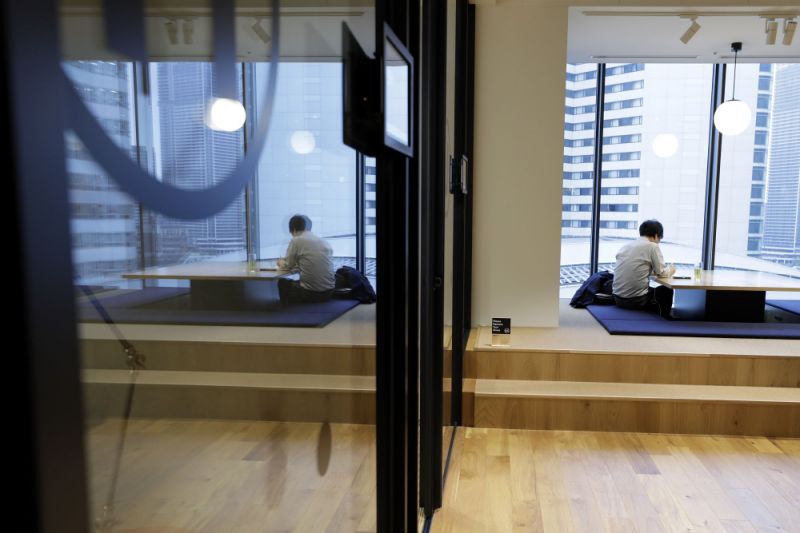
(Bloomberg) — WeWork, the troubled co-working giant backed by SoftBank Group Corp., is set to suffer the loss of a major tenant in Japan as Rakuten Inc. exits, according to people familiar with the matter.
Rakuten, a Japanese e-commerce giant, will let its contract run out in August without renewing, the people said, asking not to be identified because the details are private. That will leave about 700 desks empty in Tokyo. Rakuten is moving staff in its financial tech arm from the co-working spaces into its new offices, one of the people said.
Spokespersons for Rakuten and WeWork declined to comment.
Shared offices around the world emptied out as the number of coronavirus infections mounted earlier this year. But even as the pandemic subsides in certain areas, it’s not clear tenants will return. WeWork’s short leases make it particularly vulnerable to budget cutbacks, while its dense office layouts run counter to new social distancing norms. Many firms have also discovered working from home to be a viable alternative.
Japan is an important market for WeWork in part because it is home to SoftBank. The Japanese conglomerate bailed out the co-working startup last October after its initial public offering attempt imploded and now owns about 80% of the company. A month later, SoftBank’s founder Masayoshi Son cited WeWork’s Japanese operations, which were profitable at the time, as the reason he was convinced the business can be turned around.
WeWork’s Escape Plan Is Buried in the Books at Its Tokyo Office
WeWork’s higher proportion of large corporate clients in Japan, including SoftBank, has helped it weather the first wave of the pandemic better than it has in other markets. Still, it saw occupancy plunge to about 60%, one of the people familiar said, describing the current situation as dire. Occupancy is key for pulling out of the red and was over 90% for Tokyo locations late last year. In addition to Rakuten, WeWork Japan is also losing smaller tenants including publisher Kadokawa Corp. and Oyo Hotels, another SoftBank company. Kadokawa and Oyo didn’t immediately respond to requests for comment.
Even before the virus hit, WeWork was already cutting costs worldwide and freezing expansion to focus on profitability. The New York-based company responded to the outbreak by offering some tenants discounts to minimize cancellations amid government-mandated quarantines. It also hasn’t paid rent for some locations and has approached landlords regarding rent abatements, revenue-sharing agreements and other lease amendments as it seeks to trim liabilities.
But the outbreak has also created new sources of demand for WeWork, as companies seek to distribute their workforces over a greater geographic area, according to a separate person with close knowledge of WeWork’s operations. Outside Japan, the company has succeeded in attracting major new tenants recently, including Mastercard Inc. and TikTok-owner Bytedance Ltd., the person said asking not to be named. Microsoft Corp. is moving its Tel Aviv development center to a WeWork location, while drug maker Merck & Co. signed a lease in New Jersey, according to media reports.
WeWork is on track for positive cash flow in 2021, Executive Chairman Marcelo Claure told the Financial Times earlier this month, without giving further details. The company had previously targeted cash-flow positive by 2023 and positive adjusted earnings before interest, taxes, depreciation and amortization by 2021.
<p class="canvas-atom canvas-text Mb(1.0em) Mb(0)–sm Mt(0.8em)–sm" type="text" content="For more articles like this, please visit us at bloomberg.com” data-reactid=”29″>For more articles like this, please visit us at bloomberg.com
<p class="canvas-atom canvas-text Mb(1.0em) Mb(0)–sm Mt(0.8em)–sm" type="text" content="Subscribe now to stay ahead with the most trusted business news source.” data-reactid=”30″>Subscribe now to stay ahead with the most trusted business news source.
©2020 Bloomberg L.P.









